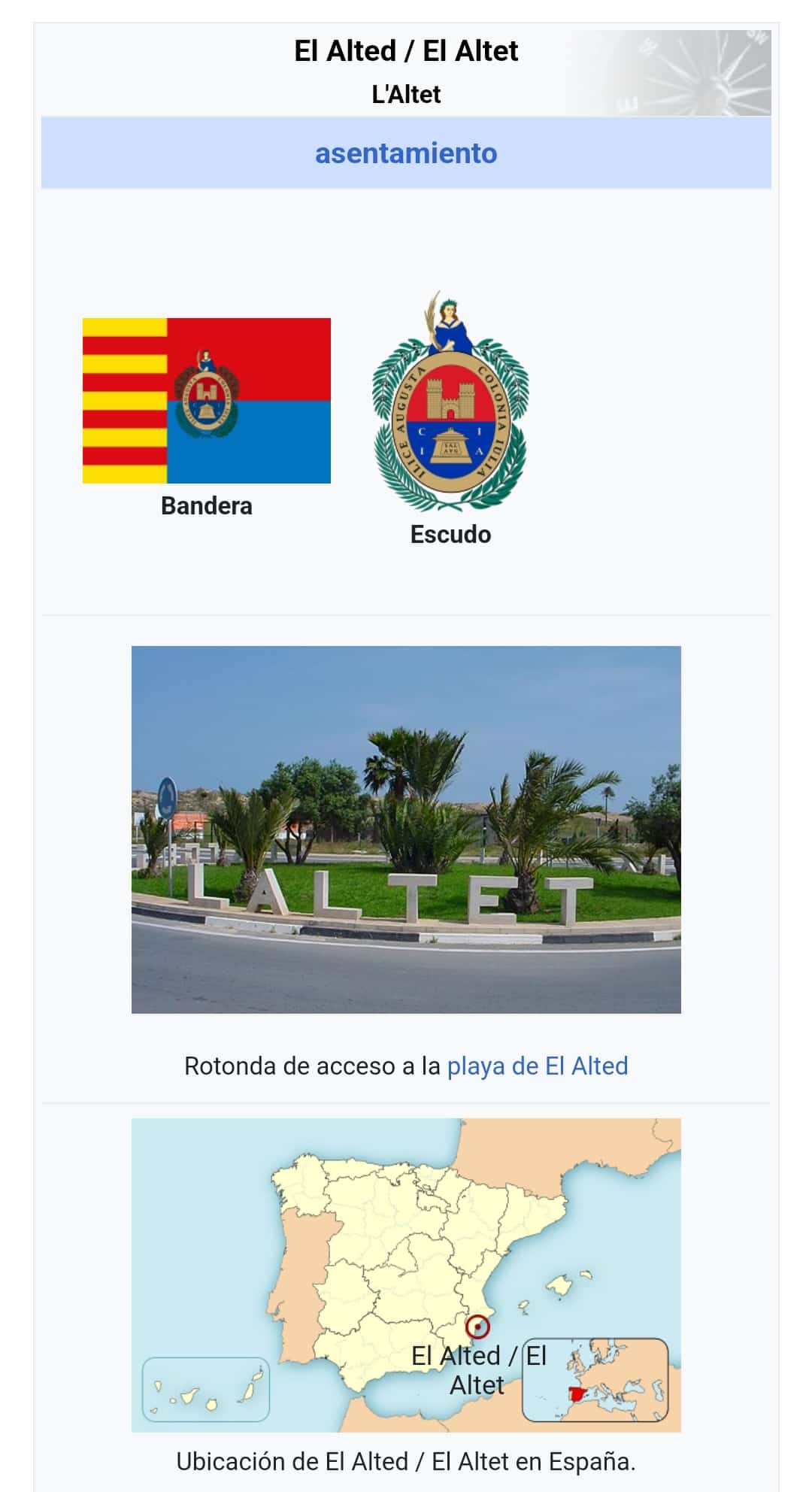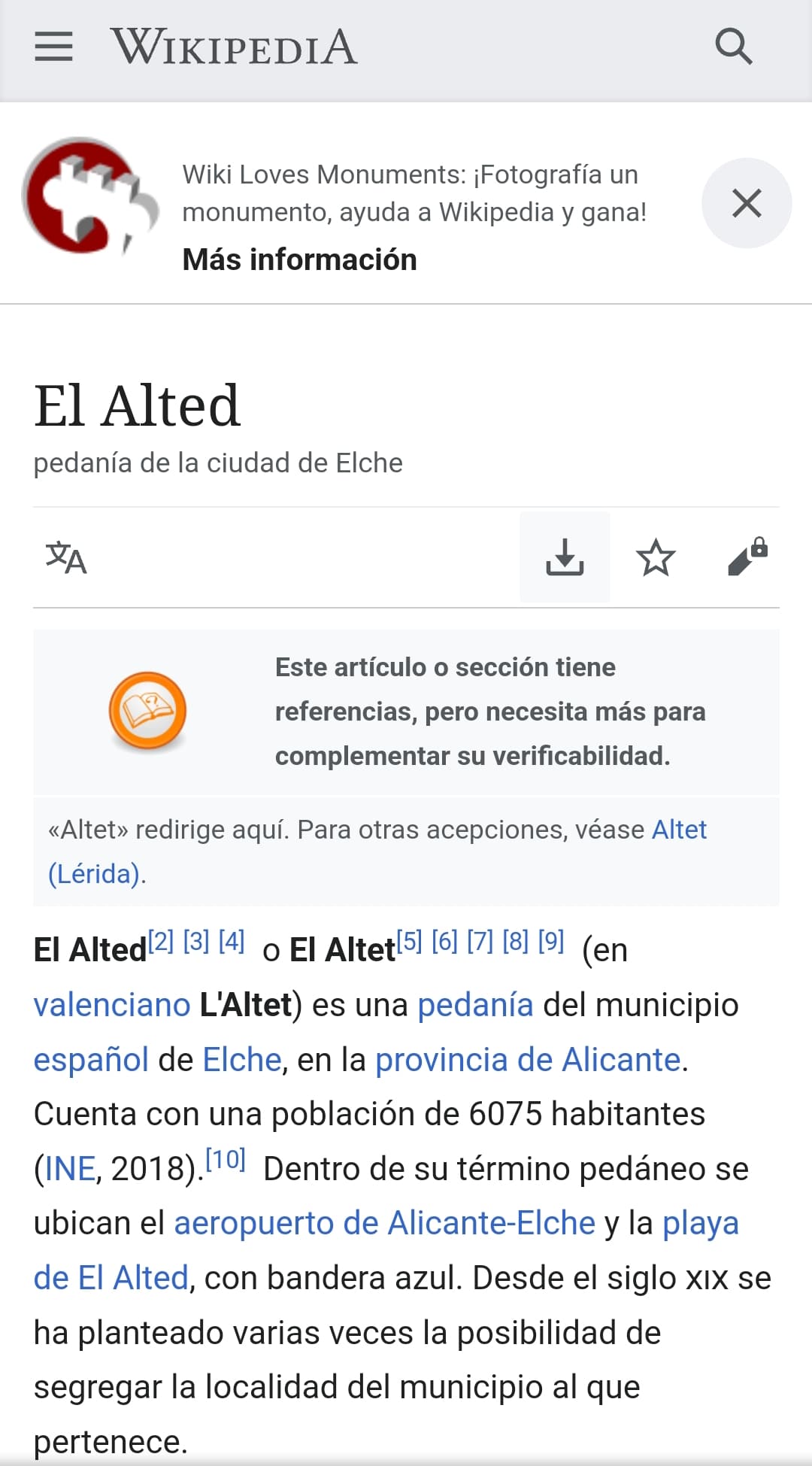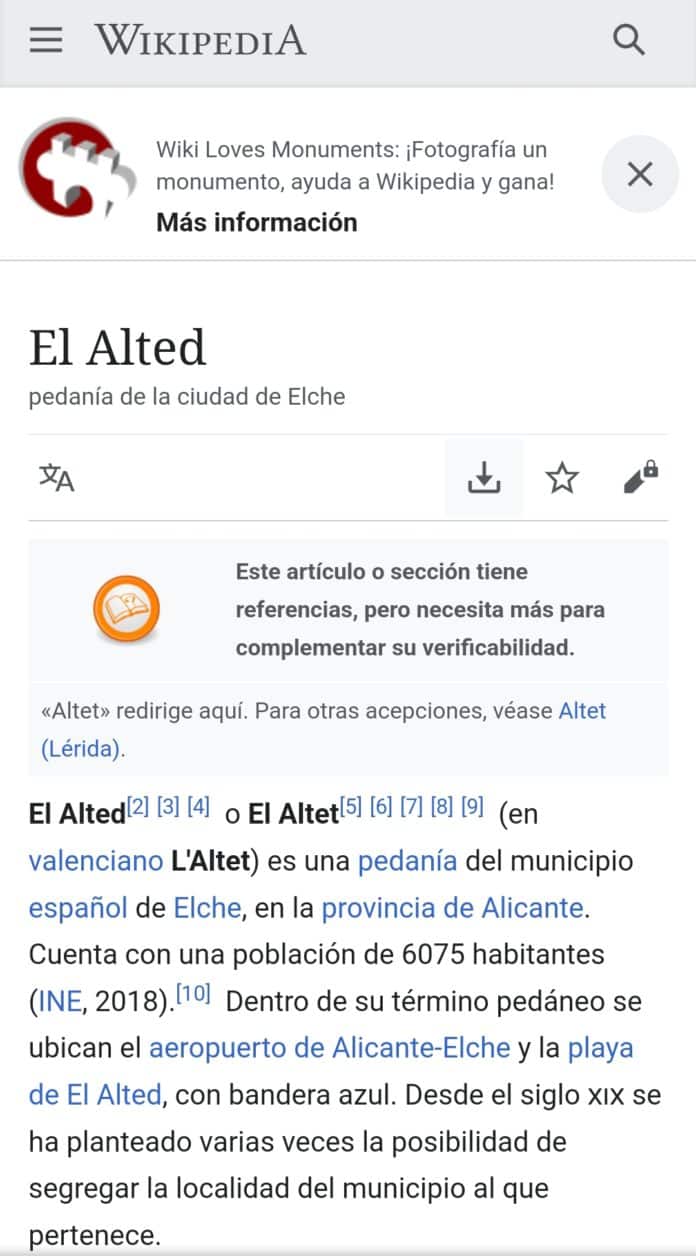The use of double names for towns in the Valencia region is not uncommon, with obvious connotations such as Elche or Elx, Crevillente or Crevillent, and even Alicante or Alacant, as the dual-language region means that this is pretty much standard, but one town is fighting for the recognition of the correct use of their name and is taking on the multi-user-edited giant of Wikipedia to change.
With more than 6,000 inhabitants, El Altet is one of the most populated districts of Elche, one of the largest centres outside the urban area, and home to the provincial airport that, perhaps sadly, no longer shares the town´s name, that of Alicante Elche Miguel Hernandez airport. However, if someone is looking for information about El Altet on Wikipedia, it persistently displays the town´s name as ‘El Alted’.
A group of Altetans and Altetanas, for which Wikipedia does use the letter “T”, have been fighting for years for the correct recognition of ‘El Altet’, which they say is the name the town has always been known as historically.
This group asserts that there are hardly any references that support the name ‘El Alted’, the last one being thirty years ago, while they highlight that there are “hundreds of evidence that show that its correct name in Spanish is ‘El Altet'”. Their complaint comes because they explain that there are several users who, without being from the area, and not knowing the context, continue to prevent the district from continuing to be known only by its correct name on this portal, ‘El Altet’, with ‘El Alted’ being a kind of Castilianisation that in practice no one uses. But it can be dragged into other areas and mislead or be considered correct.
The neighbours report that those who have access to change the name on Wikipedia maintain that in Spanish it is El Alted. Which they categorically describe as “false”, adding that this name only appeared a couple of times in a document during the Franco regime. “This is all they tie themselves to to continue maintaining that name.” An injustice that they also consider must be rectified to correctly preserve the digital legacy of the province, since they warn that applications such as Instagram, when taking names from Wikipedia, show toponymy such as El Alted. A collateral effect that helps reproduce and therefore consolidate the term.
As can be seen in a simple search, ‘El Alted’ does appear, although it is also indicated that it could be said ‘El Altet’. Or because of the construction in Valencian, L’Altet, as it appears on an entrance roundabout, and as the airport was previously known. The matter has even led to debates in the discussion part of each word to eliminate El Alted for years, with users defending the term, refusing and looking for an example. The detractors, fed-up neighbours, have been looking for references to El Altet for some time, to demonstrate that the use in some official document or publication of ‘El Alted’ is very specific or even erroneous because it has not been used again afterwards.
In the search to prove that it is El Altet, the last references found by these neighbours are three official dictionaries from the 19th century where the place name appears in Spanish as El Altet. In addition, obviously all the official signage, from the airport to the page of the Elche City Council, passing through the establishments of the district, the National Institute of Statistics and even the decree from 1964, also during the dictatorship, in which The Provincial Council and the Alicante City Council contributed funds to acquire the land on which to build the future aerodrome in Elche territory.
The even point out that in Spain, a word is entered into the dictionary, because it is used widely and permanently, as is clearly not the case with “El Alted”.







